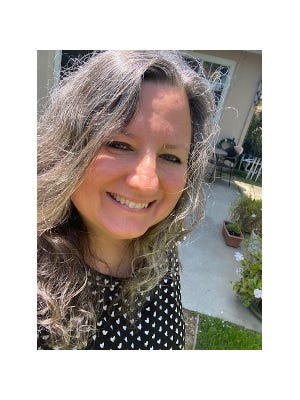March 3, 2017
 Non-phthalate plasticizer suggested as a potential alternative to DEHP.
Non-phthalate plasticizer suggested as a potential alternative to DEHP.
A recent study demonstrates that a non-phthalate plasticizer performs comparably to a phthalate plasticizer when used in red blood cell storage bags. The non-phthalate plasticizer, Eastman 168 SG, was studied at the Blood Center of Wisconsin, reported Mark Brucks, market development manager, plasticizers, for Eastman.
Consisting of DEHT (Bis (2-Ethylhexyl) Terephthalate), Eastman's "sensitive grade" non-phthalate plasticizer is a newer extension of the Eastman 168 non-phthalate plasticizer developed for applications such as medical devices, toys, childcare articles, and food contact applications.
DEHT can be used as an alternative to DEHP (D1(2- Ethylhexyl) phthalate for bags to store red blood cells in AS-1 and PAGGSM preservative solutions, Brucks told Qmed at MD&M West 2017.
"Eastman has had DEHT around for about 41 years, and in 2013 it launched the SG grade," said Brucks. He believes that the product would be of interest to blood bag producers and other users of DEHP, as "EU regulations are pushing back on DEHP and pushing blood bag producers to find alternatives."
DEHP can migrate into the blood product, stated Eastman in a brochure on the study, adding that "rodent studies have suggested that DEHP exposure may be associated with adverse health effects albeit at high levels." FDA and the EU still approve the use of DEHP in medical device applications, Brucks noted.
DEHP has been used to make PVC flexible for years, and its use in blood bags has also been found to help minimize hemolysis, or the breakdown of red blood cells, Brucks explained.
To prove DEHT as a suitable alternative, Eastman and the Blood Center of Wisconsin set out to study Eastman 168 SG's performance when used for storage bags for red donor blood in AS-1 and PAGGSM preservative solutions.
The study concluded that while DEHP does generally outperform DEHT in terms of minimizing hemolysis, all red blood cell samples tested were well below both the FDA requirement of 1.0% hemolysis and the EU requirement of 0.8% hemolysis after 42 days of storage, including those stored in DEHT (Eastman 168 SG) bags. In one case, the "DEHT-PVC with PAGGSM bag showed comparable hemolysis performance to the DEHP bag," shared researchers.
In addition to studying hemolysis, the study researchers also found reduced plasticizer migration from DEHT bags than from DEHP bags. Specifically, Eastman 168 SG showed 72% less migration into red blood concentrate, reported Brucks. The results were after 189 days in storage, much longer than the 42-day standard. And results showed that "hemolysis results in DEHT bags were achieved with lower migration of plasticizer into the red blood cell solution."
Consequently, the study authors concluded that Eastman SG 168 non-phthalate (DEHT) "should be considered a lead alternative plasticizer for PVC blood bags."
Study results were shared at the International Society of Blood Transfusion (ISBT) and AABB 2016 annual meeting. Later this year, researchers are expected to wrap up another study of Eastman 168 SG's performance when used for fresh frozen plasma, Brucks said.
PVC Med Alliance lists Eastman 168 SG among its list of DEHP alternatives at http://pvcmed.org/pvc-in-healthcare/pvc-and-plasticisers/.
For perspectives on medical device development, plan to attend the conference at Advanced Design & Manufacturing Cleveland March 29-30. You'll learn about the journey from product conceptualization to market entry as well as the emerging technologies that are changing the future of the healthcare landscape.
Daphne Allen is executive editor of Pharmaceutical & Medical Packaging News and a contributor to Qmed. Reach her at [email protected] and on Twitter at @daphneallen
About the Author(s)
You May Also Like




